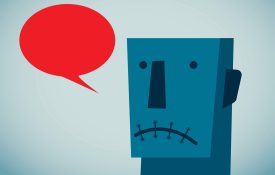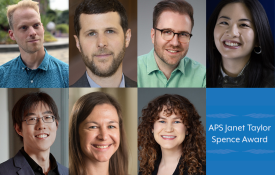-

Talking Politics With Strangers Isn’t as Awful as You’d Expect, Research Suggests
Many of us avoid discussing politics with someone who holds an opposing viewpoint, assuming the exchange will turn nasty or awkward. But having those conversations is far more gratifying than we expect, new research suggests.
-

Driving Simulation and AI Deepen Insights into Impulsivity
Lab experiments sometimes have participants engage in tasks that don’t capture the full range of behaviors people display in their day-to-day lives, but pairing realistic tasks with machine learning could help researchers more accurately assess individuals’ personality traits.
-

The Costs of the Secrets We Keep
Psychological experiments historically included lab-invented secrets and simulated social interactions. But a fresher body of research explores the secrets people keep in their everyday lives, experimental psychologist Michael Slepian wrote in a new article for Current Directions in Psychological Science.
-

Conversation Research Still Requires a Human Ear
Conversations, whether in the form of small talk or a heated debate, involve a nuanced and unique exchange of words and behaviors. Recent technological advances have made it easier for conversation researchers to manage this complexity, paving the way for a deeper understanding of how humans communicate.
-

We All Love to Be Loved, But Women May Experience Love More Frequently than Men
Conventional wisdom holds that men and women approach romance differently. But new research suggests that love is important for well-being regardless of gender—and the differences that do exist may hint at the evolutionary basis of love.
-

Seven Early-Career Researchers Honored With 2024 APS Janet Taylor Spence Award
The seven recipients are honored for cutting-edge research on topics ranging from self-regulation to collective emotions to multicultural experiences.

